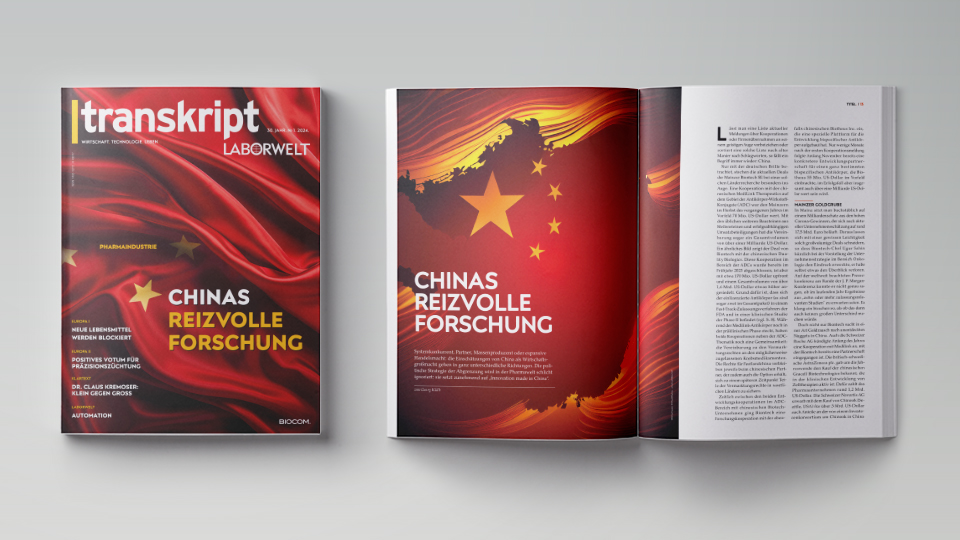Just published: |transkript 1/2024
|transkript, one of our German magazines, has been the leading industry publication for biotechnology and life sciences in German-speaking Europe since 1995. It covers current information, opinions, and background on business, research, and politics.
In this issue:
Competitor, partner, mass producer, or expansive trade power: opinions on China as an economic force vary widely. In the pharmaceutical world, however, the political strategy of distancing is simply ignored, with increasing reliance on “Innovation made in China.”
Other topics:
Dead End for Straw
Chemical company Clariant is making a hard exit from bio-based fuel development. Its €240 million production plant in Romania is being closed, and activities at German sites are being scaled back.
Silver Lining
At the start of 2023, most believed it would be a tough year, especially considering the declining investor confidence in the US. However, optimism is now on the rise.
New AI Tool for Cell Atlases
Cell atlases offer ever-deeper insights into cellular processes, including organ pathologies. However, integrating patient cohort data, proteomics, and single-cell analyses has been challenging. In an interview, Prof Dr Dr Fabian Theis, Head of the Computational Health Center at Helmholtz Munich, discusses new advancements.
Barriers for Food-Tech
While the UK plans to invest £1 billion in biotechnological food production over the next decade, progress in Germany has been sluggish. Challenges in the burgeoning global market for cellular agriculture were discussed at the IWBio annual conference.
Red-Green Blockade
Spanish Agriculture Minister Luis Planas fought hard until the end of December to secure a qualified majority for the EU Commission’s proposal to simplify approvals for plants bred using new genomic techniques, but to no avail.
Virus Becoming More Aggressive
Is SARS-CoV-2 becoming dangerous again? The Pirola variant, dominant since summer 2023, infects lung cells with efficiency similar to the Delta variant. A Göttingen research team has investigated the reasons behind this renewed risk of pneumonia.
Also featured:
Read issue 1/2024 of |transkript here.

